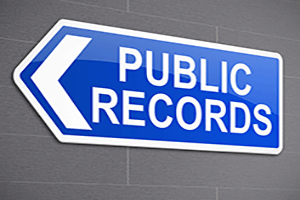Tarrant County Public Records
Public records are a cornerstone of a transparent government, as well as providing citizens with access to vital information. In Tarrant County, Texas, these records encompass a wide range of documents. From court records and criminal records, to property deeds and tax liens, they offer a glimpse into the workings of local government. But how does one access these records? The process can seem daunting, especially for first-timers. This guide aims to demystify Tarrant County public records. It will explain what they are, how to access them, and what information is not considered public record.
What Are Public Records?
Public records are documents or pieces of information that are not considered confidential. They are kept by government agencies and are accessible to the public upon request. In Tarrant County, public records include a variety of documents related to legal, financial, and governmental matters. These records serve as an essential tool for maintaining transparency between the government and its citizens. Understanding what qualifies as a public record can be instrumental for anyone looking to access this information in a legal and efficient manner.
Types of Public Records in Tarrant County
Tarrant County offers access to numerous civil, criminal, vital, and property public records that cover various aspects of life and law. Each type of record provides specific insights into personal and governmental activities. They are essential for legal proceedings, verifying information, and for historical research.
These Publicly Available Records include:
1). Court records: Can be obtained from the Clerk of Courts, or from the respective County Courthouse website.
2). Criminal Records: Can be obtained from the County Clerk, or the Texas DPS - Crime Division.
3). Driving Records: Driver records can be obtained from the Texas DPS - Driver License Division.
4). Vehicle Records: Many vehicle records, including vehicle history reports, can be resourced from the Texas DMV.
5). Property Records: Real estate records can be requested from the Tarrant County Clerk.
6). Marriage Licenses: Marriage license information can be accessed from the County Court Clerk.
7). Divorce records: These can be obtained either from the County Courthouse or the Texas Department of Health - Vital Records Department.
8). Birth and Death Records: Birth records and death records can be accessed through the Texas Department of Health also.
9). Tax Liens: These can be accessed through the Tarrant County Tax Accessor.
10). Bankruptcies: Bankruptcy records can be obtained through the respective Bankruptcy Court.
11). Business Filings: DBAs and general business information can be obtained through the County Clerk.
12). Government Meeting Minutes: Many of these records can be obtained through the County Commissioners Court.
Court records document legal proceedings within Tarrant County's jurisdiction. Meanwhile, property records provide details on real estate transactions and ownership. Marriage and divorce records reveal details about marital status changes, while birth and death certificates track life events. Each type of record is maintained meticulously by the respective government department, ensuring accuracy and availability. Access to these records can be invaluable for both personal and professional purposes.
Accessing Public Records From Government Agencies
Accessing public records in Tarrant County can be straightforward if you know where to look. Several methods are available to obtain these records, making it easier for you to find the information you need. Each method caters to different preferences and needs.
One efficient way to access public records is through online databases. Moat government agencies offer access to digitized many records, making them searchable online. This method is convenient and allows you to access records from the comfort of your home. Websites often have search tools designed to help you find specific documents quickly.
Alternatively, you can make in-person requests if you prefer a more hands-on approach. Visiting the county offices allows you to speak directly with staff who can guide you through the process. This is especially useful if you require assistance or have complex inquiries.
Finally, requesting records by mail or contacting specific government agencies is another option. Many departments accept written requests for public records. This method can be more time-consuming, but it is a viable option for those who cannot visit in person or navigate online systems. Each of these methods ensures that you can effectively access Tarrant County public records based on your preferences and requirements.
Tarrant County Medical Examiner Public Records
The Tarrant County Medical Examiner's records offer insights into autopsies and investigations of deaths. These documents can assist in understanding the cause and manner of death. Access to these records is available through the Tarrant County Medical Examiner's Office. However, some sections may be restricted due to privacy concerns. When requesting these records, be prepared to provide essential information like the name of the deceased and date of death. It's important to remember that while some records are public, others may remain confidential depending on the case particulars.
How to Run a Tarrant County Public Records Search
Searching for public records in Tarrant County can be straightforward when following the right steps. Begin by identifying the specific type of record needed, such as court or property records. Next, determine the appropriate agency to contact and check if they have an online database for easier access.
To ensure a successful search, keep these tips in mind. First, gather all necessary information like names, dates, or case numbers before starting. This preparation can save time and prevent unnecessary delays. Additionally, confirm whether the record is publicly accessible, as some documents may have restrictions.
Be aware of common mistakes that can occur during a public records search. One frequent error is neglecting to verify details such as spellings or dates. Double-checking this information can prevent wasted effort. Also, remember that not all records are updated instantly, so patience may be required if the record is newly created.
Information Not Considered Public Record
While many records are publicly accessible via the Tarrant County Public Information Act, certain information is classified as private. This means it cannot be freely accessed by the general public. Understanding these exceptions helps clarify what information you can access when performing a public records search. These restrictions aim to protect sensitive and confidential data from unwarranted exposure.
The following types of records are not considered public:
Juvenile Records: These are sealed which safeguard the privacy of minors involved in legal matters.
Sealed documents: These are often protected by court order, remain confidential.
Certain Law Enforcement Records: Especially those under investigation, are kept private.
Confidential Records: There is a wide range of records that are confidential, from ongoing investigations to national security issues.
The Texas Public Information Act and Your Rights
The Texas Public Information Act is a very important part of the state's legislature, that ensures governmental transparency. It grants Texans the right to access certain information held by the government. Through this act, residents can request various public records, facilitating informed participation in civic life. This law underscores your right to know how public resources are utilized. However, the act also acknowledges privacy concerns. It provides guidelines on which records can be withheld. Understanding your rights under this act empowers you to access essential information, enhancing government accountability throughout the state.
Fees, Time Frames, and Appealing Denied Public Record Requests
Obtaining public records usually involves some fees. These charges cover the costs of producing documents, especially if many copies are needed. The fees vary depending on the type and number of records requested. The time frame for receiving records can differ. Typically, requests are fulfilled within ten business days. If your request is denied, there is a process for appeal. You can seek a review from the Attorney General's Office, which ensures that your rights to access information are upheld. Understanding these procedures helps in navigating the public records system efficiently.


